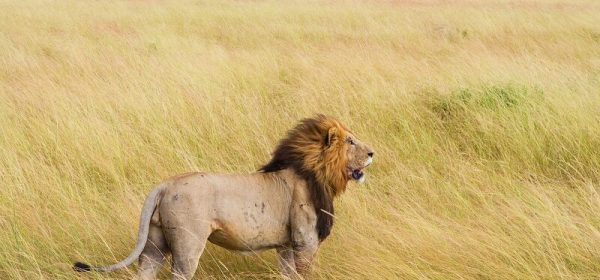Embarking on a safari expedition is a thrilling adventure that allows travelers to witness wildlife in its natural habitat. From the vast savannahs of Africa to the dense jungles of South America, safari destinations offer unparalleled opportunities to observe a diverse range of animal species in their native environments. As travelers venture into the wilderness, they can experience close encounters with iconic wildlife such as lions, elephants, giraffes, and rhinos, creating unforgettable memories that last a lifetime. Let’s delve into the world of safari expeditions and discover the magic of witnessing wildlife up close in its natural habitat.
Immersive Wildlife Encounters
One of the most exciting aspects of safari expeditions is the opportunity for immersive wildlife encounters. Travelers can embark on game drives, guided walks, or boat safaris led by experienced rangers and naturalists who provide insight into the behavior and ecology of the animals. Whether it’s observing a pride of lions on the hunt, witnessing a herd of elephants bathing in a watering hole, or tracking elusive leopards through the bush, safari expeditions offer intimate encounters with wildlife in their natural habitat.
Diverse Ecosystems and Landscapes
Safari destinations are home to a variety of ecosystems and landscapes, each teeming with unique flora and fauna. From the sweeping plains of the Serengeti to the lush wetlands of the Okavango Delta, travelers can explore a diverse range of habitats that support a wealth of wildlife. Whether you’re traversing open grasslands, navigating winding rivers, or trekking through dense forests, each landscape offers its own set of adventures and opportunities for wildlife sightings.
Conservation and Sustainability
Safari operators and lodges play a crucial role in conservation and sustainability efforts in the regions where they operate. Many safari companies support local conservation initiatives, community development projects, and wildlife rehabilitation centers, contributing to the protection of endangered species and the preservation of natural habitats. Travelers can support these efforts by choosing responsible and eco-friendly safari operators that prioritize sustainability and ethical wildlife viewing practices.
Cultural Immersion
In addition to wildlife encounters, safari expeditions offer opportunities for cultural immersion and interaction with local communities. Many safari destinations are home to indigenous tribes and ethnic groups with rich cultural traditions and customs. Travelers can visit local villages, meet with community members, and learn about their way of life, gaining insight into the symbiotic relationship between humans and wildlife in these regions.
Photography Opportunities
Safari expeditions provide photographers with unparalleled opportunities to capture stunning images of wildlife and landscapes in their natural habitat. Whether you’re a seasoned wildlife photographer or an amateur enthusiast, safari destinations offer endless possibilities for capturing breathtaking moments and iconic scenes. With the guidance of experienced guides and naturalists, photographers can hone their skills, experiment with different techniques, and capture images that showcase the beauty and diversity of the natural world.
In conclusion, safari expeditions offer travelers the chance to witness wildlife in its natural habitat and immerse themselves in the beauty and diversity of the natural world. From immersive wildlife encounters and diverse ecosystems to conservation efforts and cultural immersion, safari destinations provide enriching experiences that inspire awe and appreciation for the wonders of nature. By choosing responsible and sustainable safari operators, travelers can support conservation efforts and contribute to the protection of wildlife and habitats for future generations to enjoy. Whether you’re seeking thrilling wildlife encounters, stunning photography opportunities, or cultural immersion, a safari expedition promises adventure, excitement, and unforgettable memories.

